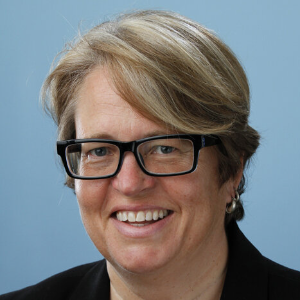Title : Employment strategies for young adults with co-occurring substance use and other psychiatric disorders
Abstract:
The State Vocational Rehabilitation (VR) service-delivery system is funded by the U.S. Department of Education (USDOE) Rehabilitation Services Administration (RSA) and assists individuals with disabilities to obtain employment (USDOE, 2022). Over $3 billion is spent annually to provide services to nearly 1 million active VR clients, and nearly half of the clients served have a psychiatric disability coded as their primary or secondary disability (Leahy et al., 2018; Peterson & Olney, 2021; USDOE, 2022). In the State VR system, eligibility for services is determined based on disability and the desire for employment. State VR counselors and clients work together to establish an Individualized Plan for Employment (IPE) that takes the client’s interests and abilities into account, identifies the employment goal, and outlines the services and supports needed to secure employment (Federal Code of Regulations, 2022; Tarvydas & Hartley, 2017; Wilson et al., 2018). The RSA collects data from all State VR agencies on participant demographics, the services provided, and employment outcomes. These data are available to researchers in the RSA-911 data set (RSA, 2022).
Purpose of the Study: To identify State vocational rehabilitation (VR) services that were associated with employment foryoung adults with co-occurring substance use and other psychiatric disorders
Research Questions:
Based on the review of the literature and an understanding of the State VR service-delivery system, two research questions were developed:
RQ 1: How do demographic factors affect the employment outcomes of young adults with co-occurring substance use and other psychiatric disorders after receiving VR services?
RQ 2: Which VR services are directly related to the employment outcomes of young adults with co-occurring substance use and other psychiatric disorders who received state VR services?
VR agencies serve individuals with all types of disabilities and are encouraged to use
evidence-based strategies. Therefore, we hypothesized that evidenced-based services would be predictors of successful employment outcomes.
Methods: 2019 RSA-911 data was used. Hierarchical logistic regression analyses examined the effect of demographic covariates and State VR services on employment outcomes for young adults 24 years old and younger with primary and secondary disability codes indicating a co-occurring substance use disorder and other mental illness.
Results: After controlling for the effect of demographic covariates, client participation in assessment for IPE development services, job placement services, and supported employment services were the services found to significantly impact employment outcomes.
Conclusions and Implications for Practice: State VR services that aligned with the individual placement and support (IPS) model of supported employment principles were correlated with successful employment outcomes for young adults with co-occurring substance use and other psychiatric disorders who received these services. State VR counselors are encouraged to support employment services for their clients with SUD and other psychiatric disorders and to coordinate these services with partner agencies in the community.
What will audience learn from your presentation?
- Based on the results of the study that will be shared, participants will learn strategies to partner with and advocate for young adults with co-occurring substance use and other psychiatric disorders in State Vocational Rehabilitation (VR) and similar service-delivery systems in order to provide high quality assessment and job placement services
- Participants will learn strategies to collaborate with State VR and community partner agencies that provide the following recovery-oriented and evidence-based services:
- Assertive Community Treatment (ACT) model case management
- Wellness Recovery Action Plan (WRAP) classes
- mental health services
- SUD screening and treatment
- Individual Placement and Support (IPS) model supported employment services
- services for youth who are homeless
- support for youth involved in the criminal justice and foster care systems
- Participants will learn strategies to assist young adults with co-occurring substance use and other psychiatric disorders to formulate a WRAP as a State VR assessment and Individualized Plan for Employment (IPE) planning service. WRAP classes help clients identify strategies to manage their psychiatric symptoms that can be included in their IPE (e.g., nutrition, exercise, yoga, psychotherapy, peer support meetings, medication). WRAP provides individuals with peer support and the tools needed for long term success on the job (Copeland Center, 2022; Olney & Flores, 2017; Peterson, Saia et al., 2021)
- Participants will learn strategies to advocate for VR counselors to incorporate aspects of the evidence-based IPS supported employment model within existing State VR service-delivery, such as with the State VR On-the-Job Training (OJT) service (California Code of Regulations, 2022; Leahy et al., 2018; Minnesota Department of Employment and Economic Development, 2022; New York State Education Department, 2022; Peterson, Alkhadim, et al., 2021).




